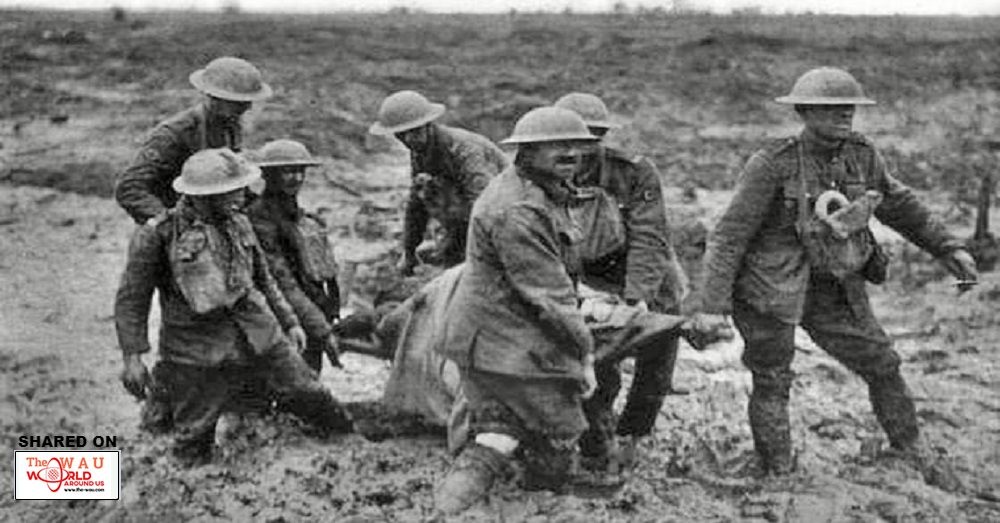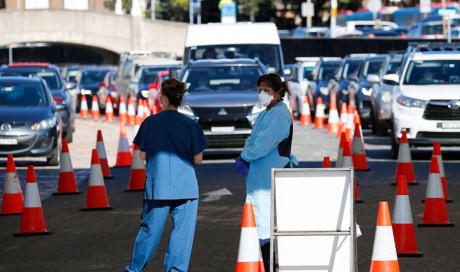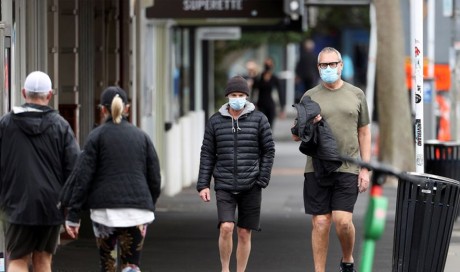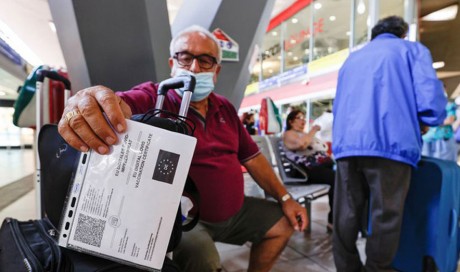A new exclusive short story by War Horse author Michael Morpurgo will be performed in Belgium to mark the centenary of the first world war’s battle of Passchendaele.
Extracts from The Wipers Times, the play by Ian Hislop and Nick Newman about the satirical newspaper produced by troops fighting around Ypres, will also be performed at the commemoration in the Belgian town.
Images from the war will be projected on to the town’s Cloth Hall, which was destroyed and later rebuilt, and the event on Sunday 30 July will also feature interviews with first world war veterans and accounts from soldiers, nurses and loved ones.
It will be preceded by the traditional Last Post ceremony that has taken place every evening since 1928 at Ypres’ Menin Gate, which is inscribed with the names of more than 54,000 soldiers whose bodies were never found or identified.
The following day there will be a ceremony at the Commonwealth War Graves Commission’s Tyne Cot cemetery, which will be attended by thousands of descendants of the men who fought in the battle.
The battle of Passchendaele was fought near Ypres between 31 July and 10 November 1917, in battlefields that turned to liquid mud.
Allied forces suffered more than 320,000 casualties and German losses are estimated to be between 260,000 and 400,000.
Morpurgo’s live reading of From Farm Horse To War Horse, which he wrote especially for the event at the Cloth Hall, will be accompanied by an appearance by the horse puppet Joey from the National Theatre stage adaptation of War Horse.
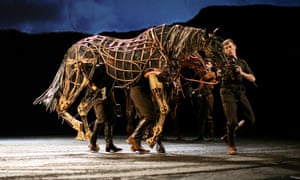
Joey the puppet horse, used for the production of War Horse at the National Theatre, London, will be at the centenary commemoration. Photograph: Graeme Robertson for the Guardian
He said: “We are now 100 years on from the battle of Passchendaele, one of the most appalling battles of the first world war, in which thousands upon hundreds of thousands of soldiers suffered and died.
“It is a moment to reflect on their lives and on the terrible nature of that war and of all wars and on the importance of maintaining peace. They fought for our peace.
“That is what we must not forget, which is why we must continue to tell the story, to pass it on.”
Hislop, whose grandfather was at Passchendaele and survived, said it would be “extraordinary” to participate in the commemorations.
The story of The Wipers Times was a “remarkable, forgotten story” worth including in the event, he said.
“I think it’s a good idea to change the way we do things, to reflect more of the story; not merely the moment of death, but how they lived.
“I came across the story when I was making a documentary. I couldn’t believe the quality of the paper, how funny it was, how 100 years later the jokes were so sharp and black. It was an authentic voice of the troops I hadn’t heard before.”
Hislop, editor of satirical magazine Private Eye, said he recognised much of what featured in Wipers Times, including silly bylines and fake adverts.
Of the soldiers who produced the paper, having found a printing press while looking for material to prop up trenches, he said: “They refused to be cowed, they refused not to be funny, to laugh in the face of death, which is a kind of courage in itself.”
The culture secretary, Karen Bradley, who announced the details of the centenary commemorations, said: “This battle has become synonymous with the horrific conditions of the trenches, and the futility of the war.
“It is important for us to commemorate and remember not only those who never returned home from the Western Front, but the families and the communities they left behind.”
Share This Post

